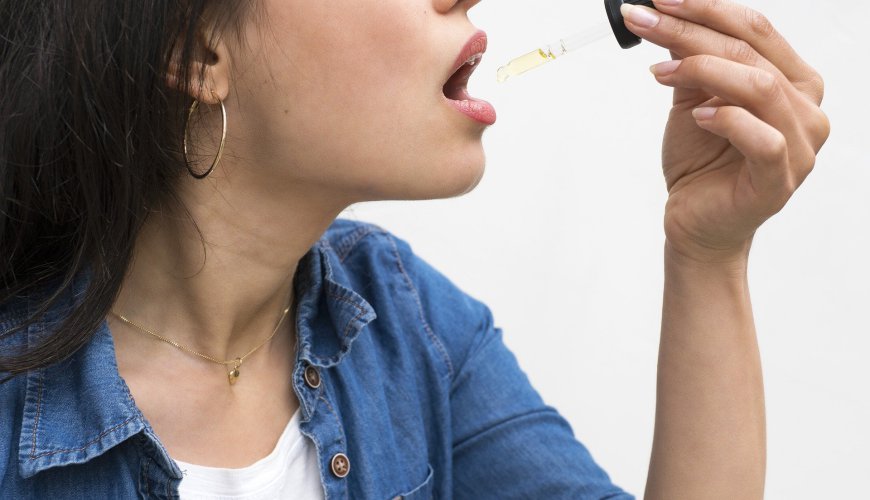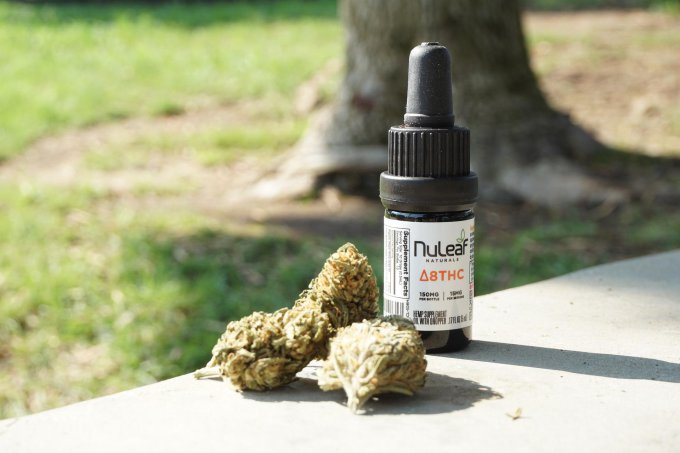How to prepare for the first visit to an aesthetic medicine office?
Jan 6, 2018 - Aesthetic Medicine
April 16, 2024 11:47am

CBD is a chemical compound in the hemp plant. It has been used for centuries to relieve pain, medication and sleep problems.
CBD interacts with your body in a different way than sedatives such as benzodiazepines or alcohol. It works with the endocannabinoid system (ECS), which is a system of neurotransmitters and receptors throughout the body.
CBD oil can reduce nervous tension, which can improve sleep quality and reduce insomnia. Sleep disorders are often associated with anxiety, as obsessive thoughts prevent us from going deeper again. CBD can also relieve pain, which is another cause of sleep disorders. A 2019 study tested the effects of CBD on 72 patients. 47 of them suffered from insomnia due to depression, and the rest had general sleep problems. The participants tested 25 mg CBD oil and more than two-thirds of the participants reported improved sleep. Learn more about the properties of cbd oil at seeduniverse.eu
It is important to use certified organic CBD in your treatment, as it is free of pesticides and toxins. Some companies produce CBD oil from waste from cannabis cultivation, resulting in substandard oils that contain harmful chemicals. It is important that the oil is carefully extracted using CO2, which means that no chemicals are added to it.

If you suffer from insomnia or wake up in the middle of the night and can't fall back asleep, taking CBD for sleep may be the solution.
CBD belongs to a special class of chemical compounds called cannabinoids. CBD oil can have many positive properties. These include:
Another very beneficial effect of CBD is its ability to make you fall asleep faster and stay asleep longer. Your body and brain contain certain receptors that only interact with cannabinoids. Our body produces its own set of cannabinoids that help us deal with emotions, regulate pain, appetite and help us fall asleep.
These cannabinoids are called endocannabinoids (endo means internally or intrinsically), and the neurons and receptors they interact with (CB1 and CB2) make up the endocannabinoid system. So, basically, your body is already accustomed to ingesting cannabinoids. The endocannabinoid system also takes in cannabinoids from outside your body. When you ingest oil, you supply your body with substances called phytocannabinoids. Your body does not differentiate between endocannabinoids and phytocannabinoids. All it "knows" is whether these cannabinoids are present or not. When they are present, they turn on certain systems in your body (emotions, pain, appetite and the aforementioned circadian systems). When cannabinoids are not present, these systems are turned off. In the case of CBD, the oil molecules bind to CB1 and CB2 receptors, calming you down, helping you stop thinking and allowing you to fall asleep faster and sleep through the night.
CBD also contains other components such as melatonin, cannabinol (CBN) and gamma-aminobutyric acid (GABA). Melatonin is a hormone produced by the pineal gland that helps the body regulate sleep. Melatonin levels rise at night and fall in the morning, depending on the amount of light you get each day. Sometimes, for various reasons, there is not enough melatonin in the body. This can make it difficult to relax and fall asleep. Taking CBD, which contains melatonin, helps create a balance in the brain so it can function, relax and fall asleep within minutes.
Gamma-aminobutyric acid (GABA for short) is a naturally occurring amino acid that acts as an inhibitory neurotransmitter in the brain. GABA, blocks certain brain signals and reduces nervous system activity. Due to these effects of GABA, it helps you stop thinking and makes you feel more relaxed so you can fall asleep.
Today, CBD can be purchased in a wide range of products, but they all fall into three main categories:
Edible CBD is largely useless as a sleeping pill, unless you plan to use it to relieve muscle pain or other localized pain. Therefore, it's the oily products that are optimal when it comes to helping you sleep.
There are very few side effects associated with CBD (in any form). One of the few frequently reported problems is dry mouth after taking CBD. However, it is important to remember that CBD's effects are biphasic, meaning that at certain levels CBD provides a specific list of effects. At other - often higher - levels, CBD has a different effect.
So, if you're taking CBD for sleep, it's important to experiment with the dose and find one that's right for your needs. You can also check the right dose by using a CBD dosage calculator available online.
© Copyright accupc.com | All Rights Reserved.
Komentarze (0)